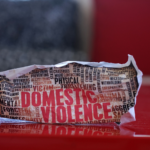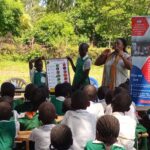
Combating HIV/AIDS Amidst COVID-19
Celebrated annually on 1st December, World AIDS Day is set aside for the globally community to unite, renew commitment and show support for people living with HIV and AIDS as well as remember those who have died from AIDS related illness.
HIV/AIDS in the COVID-19 Era
The theme for this year’s celebration is ‘Global solidarity, shared responsibility.’
This theme underscores the significance of individuals, countries and the global community uniting in taking responsibility to address HIV and AIDS amidst the growing list of challenges derailing ongoing global efforts to significantly reduce the effects of HIV/AIDS including the COVID 19 pandemic.
Being the 32nd edition since its inception, this year’s World AIDS Day is being commemorated under the new unprecedented COVID 19 pandemic which is threatening to erode gains made against AIDS over the years. A recent study by UNAIDS warned of retrogression in Sub Saharan Africa.
The report noted further that the global AIDS response could be set back by 10 years or more if COVID disrupts HIV services. A recent mathematical modelling study predicted that disruption of the reliable antiretroviral therapy supply for individuals in need could lead to more than 500,000 additional deaths in sub-Saharan Africa in the year 2020–2021.
The world has made significant progress since the late 1990s, but HIV remains a major global public health issue. And like many other major health issues, it faces additional challenges during the COVID-19 pandemic.
According to the World Health Organization, HIV prevention, testing, treatment and care services are all being disrupted particularly in countries with fragile heath systems. The breakdown in essential HIV services due to COVID-19 is threatening lives.
Any slowing down in provision of these services would leave many vulnerable populations at greater risk of HIV infection and AIDS-related deaths.
Kenya’s national theme, “Komesha HIV na COVID-19, #Tuwajibike,” derived from the global theme calls upon partners and stakeholders to join hands in supporting the government efforts towards preventing the spread of HIV and COVID 19.
Kenya is racing against time to attain the ambitious global 90:90:90 HIV targets as it ushers a defining decade that the global community is determined to attain in ending AIDS as a public health threat by the year 2030.
The 90:90:90 targets stipulates that 90% of all people living with HIV will know their HIV status, 90% of all people with diagnosed HIV infection will receive sustained antiretroviral therapy and 90% of all people receiving antiretroviral therapy will have viral suppression by 2020.
In the quest of attaining this, the 2020 World AIDS Day provides an opportunity for stakeholders and partners drawn from different sectors to re-think strategies, re-imagine systems and devise new innovative ways to combat the two pandemics while ensuring that gains made against HIV are safeguarded.
In order to prevent the spread of HIV/ AIDS amidst COVID-19 and safeguard the gains made against HIV over the years, a global player in the HIV/AIDS space, Family Health International (FHI 360) made some recommendation of strategies that need to be put in place including but not limited to;
- Expanding options for HIV testing services that would reduce clinic walk-ins and physical contact, such as HIV self-testing, facility pick-up, at-home testing, home delivery, and testing at private labs.
- Establish alternate ART distribution plans with clear standard operating procedures if clinics and drop-in centers (DICs) are unable to function because staff are sick or quarantined. Examples include decentralized community distribution, pharmacies, private clinics, and home delivery (if acceptable to beneficiaries and can avoid stigma).
- Clinics should rapidly scale up multi-month dispensing (MMD) of Antiretroviral (ART),
Pre-Exposure Prophylaxis (PrEP) and other comorbidity medications for clients. For ART, establishing 3- and 6-month MMD options immediately if stocks allow, to ensure clients do not come to the clinic during possible peak COVID-19 transmission periods.
Where stocks are limited, consider a priority list of clients who should be offered MMD. Programs should work with the relevant logistics and supply chain management agencies to ensure adequate stock for all necessary medications
Moreover, UNAIDS further recommend that;
- Supporting ongoing access to condoms, lubricants, needles and syringes, and other sexual health and family planning commodities would help prevent the spread of HIV&AIDS. Adapting distribution and supply systems to ensure an uninterrupted supply of prevention commodities at community distribution points, including by providing multi-month dispensing to allow for less frequent pickups.
- Fast-tracked and emergency policies should be supported for full implementation of 3- and 6-month MMD of ART to allow clients to maintain ART adherence while health facilities are overwhelmed by COVID-19 cases and when lockdowns and social distancing limit ART refills. This may require revising forecasts and placing advance orders for ARVs.
To combat HIV&AIDS amidst the COVID-19 and safeguard the gains made against HIV over the years, embracing a common and multifaceted approach is critical.
Extensive collaboration with governments, technical experts, civil society, private sector, faith based organizations and communities is key in preventing the spread of HIV/AIDS.
Swift action, extraordinary levels of leadership and collaboration, and significant extra resources are required in mitigating the impact of COVID-19 on the countries most affected by HIV.
Together in solidarity, let us all share the responsibility of achieving the HIV/AIDS prevention milestones!



